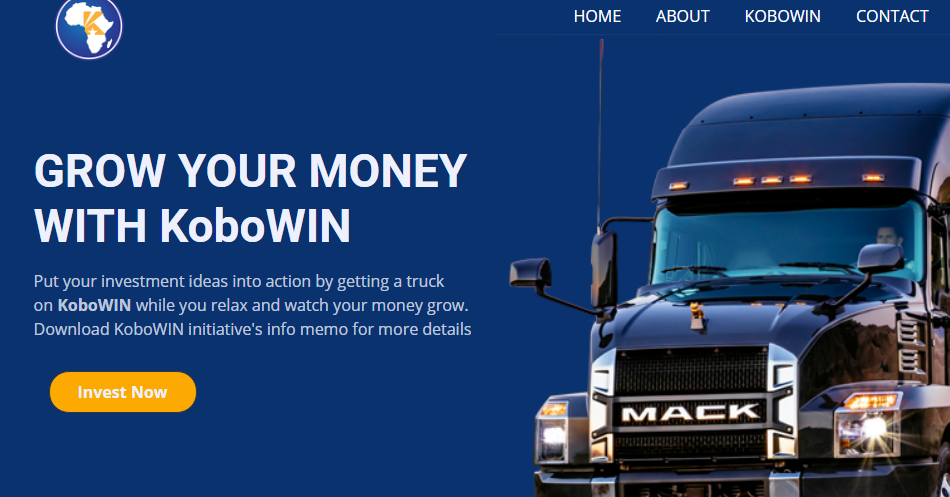Nigerian businesses, big and small, have constantly struggled with challenges resulting from inefficiency in the Nigerian logistics industry. This makes it difficult to establish strong relationships between businesses with freight needs. Online logistics solution, Kobo360, aims to address this inefficiency by connecting Nigerian businesses/companies to transport and trucking companies.
"#Logistics is the heartbeat and foundation of every #economy" Thanks to @cfagbata and @channelstv https://t.co/XBFjI25PxG
— Kobo360 (@kobo_360) August 21, 2017
Founded in 2016 by Obi Ozor (former Director of Operations for Uber Nigeria), and Ife Oyedele, the logistics startup helps both individuals and SMEs deliver goods to both local and international locations. Operating in a lucrative but hugely dominated market, Kobo360 has been able to carve out a niche for itself. Its services cost 40% less than that of the existing heavyweights (such as UPS, FedEx, and DHL) and ensures that goods are delivered on time – usually within 48 hours for local deliveries and 72 hours for international deliveries.
How Kobo360 Works
Just like the ride-hailing platform (Uber, Taxify and others), Kobo360 works like a freight-hailing platform. They partner with larger courier companies – Chisco Transport Group, DHL, UPS, Air France, KLM, SA Airlines, and a network of truckers who already have the infrastructure needed to provide services to the needing customers.
Lagos-based Verod Capital Management also joined to support Kobo360.” Kobo operates like Uber, only that its app connects Nigerian truckers to companies with freight needs. Kobo360 also said that they will use the funds to pay drivers online immediately after successful hauls.
— Ugodre (@ugodre) July 1, 2018
So the startup connects truckers to companies with freight needs, and pay the drivers or companies immediately after successful haulage.
And according to co-founder Obi Ozor;
“An average trucker will make $3,500 a month with our app. That’s middle class territory in Nigeria.”
This means that Kobo360 doesn’t spend a lot of money and personnel on infrastructure, but still allow businesses send goods with almost no geographical barrier. This business model has largely helped reduced cost of its services.
Its modus operandi doesn’t come off as surprising though considering that one of its co-founders was once a director of a ride-hailing platform.
Kobo360 also allows for customers to track the movement of their goods/shipments. Since inception, the startup has served 870 businesses. With an aggregated fleet of 7,485 drivers it has moved 138.1 million kilograms of cargo. It also processed orders worth over N1 billion in 2017 and recently won the Best Enterprise Award at this year’s AppsAfrica awards.
Top clients include Honeywell, Olam, Unilever, Futterwave, Dangote and DHL.
Kobo Wealth Investment Network


Kobo360 also runs the Kobo Wealth Investment Network (KoboWIN)- a crowd-invest, vehicle financing program. It allows members of the public (individual investor or pool of investors) to invest in a reliable truck with a seed investment of N14m per truck and get monthly returns of at least N500k for 72 months.
This initiative is necessary because of limited vehicle financing options for truckers in Nigeria. Through the programme, Kobo drivers can finance new trucks through citizen investors and pay them back directly (with interest). The startup hopes that the initiative will inject 20,000 additional trucks into their system.
Funding For the Platform
Nigerian logistics startup Kobo360 accepted into YC, raises $1.2 millionhttps://t.co/zthPPuVm6c
— Y Combinator (@ycombinator) July 2, 2018
Kobo360 recently made the list of startups accepted into the YCombinator Summer ‘18 programme, receiving $120 000 equity investment in return for 7% of the company. The startup also raised $1.2 million in pre-seed funding led by Western Technology Limited and Africa Future Limited, a Lagos based VC.
According to the startup, the investments will help to scale the startup (pay its drivers and buy more trucks) and expand its services into more African countries – Togo, Ghana, Cote D’Ivoire and Senegal, with Ghana to come this year.






